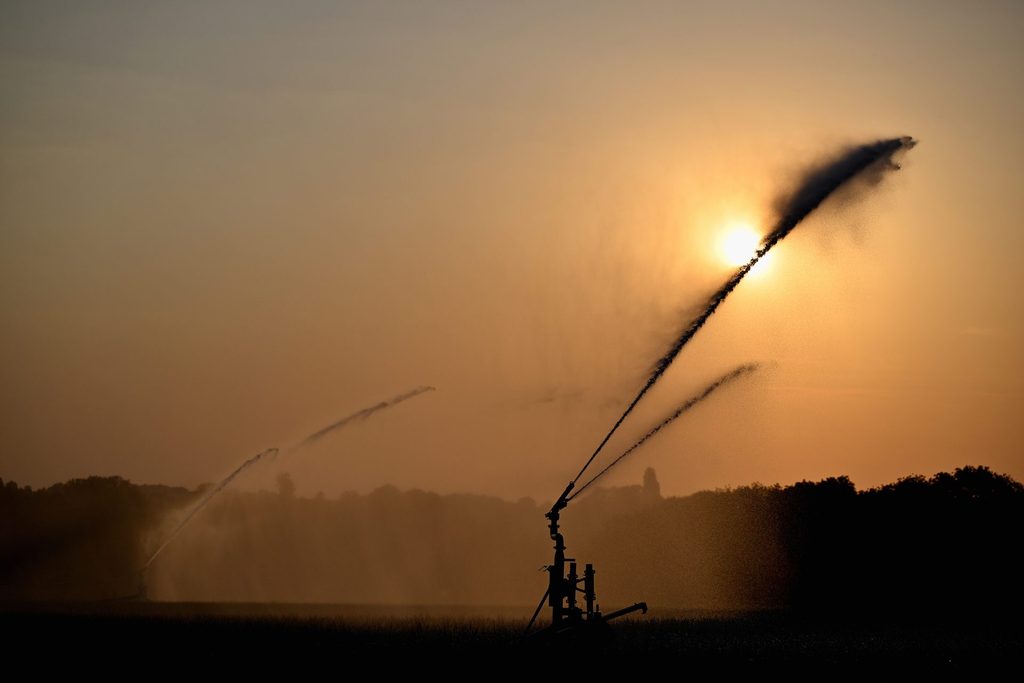Europe has been heating up twice as much as the global average, a new report shows. In 2022, the continent was 2.3°C warmer than pre-industrial average temperature levels.
For several countries, including Belgium, 2022 was the hottest year ever recorded, noted the report from the UN's World Meteorological Organisation (WMO) and the EU's Copernicus programme.
"The record-breaking heat stress that Europeans experienced in 2022 was one of the main drivers of weather-related excess deaths in Europe. Unfortunately, this cannot be considered a one-off occurrence or an oddity of the climates," said Dr Carlo Buontempo, Director, from the Copernicus Climate Change Service, in a statement.
"Our current understanding of the climate system informs us that these kinds of events are part of a pattern that will make heat stress extremes more frequent and more intense across the region.”
Climate change is taking a major human, economic and environmental toll in Europe, the fastest-warming continent of the world.
This is the #StateOfClimate in Europe. https://t.co/jlwJEbp6Qr pic.twitter.com/k9madD0vxM — World Meteorological Organization (@WMO) June 19, 2023
France, Germany, Luxembourg, Portugal, Spain, Switzerland and the United Kingdom also had their hottest year on record in 2022.
Beyond the rise in temperatures, climate change is taking its toll on several environmental fronts in Europe. Extreme weather events, melting glaciers and the increasingly hot surface of the sea are some of the other indicators of the continent's environmental challenges.
Renewables take the lead
The report on European climate paid special attention to energy production, showing a slight sign of improvement in terms of renewable energy use.
“For the first time, more electricity was generated by wind and solar than by fossil gas in the EU. Increasing use of renewables and low-carbon energy sources is crucial to reduce dependence on fossil fuels,” said WMO Secretary-General Prof. Petteri Taalas.
Wind and solar power generated 22.3% of the EU's electricity, surpassing fossil fuel (20%) and coal (16%) for the first time. On the other hand, scientists warn of the interplay between the increasing temperature and existing nuclear power plants.
Climate conditions are not the main driver of nuclear power outages, but the WMO report warns that outages have been increasing over the past 30 years, notably on account of low river flows and intense heat meaning there is not enough water to cool the reactors.
Particularly in Southern Europe, where temperatures above 40°C and droughts will become more frequent, there is a growing need to adapt nuclear energy plants.
Beyond temperatures
Rising temperatures are not only in the air but heat waves also hit underwater, driving species extinction or irregular migration in sea creatures.
British scientists recently announced that global sea temperatures in April and May 2023 broke all existing records for this month. The WOM-Copernicus report confirms that seas at all corners of the European continent are becoming increasingly warm.
In the eastern Mediterranean Sea, the Baltic and Black Seas, and the southern Arctic, the rates of surface ocean warming were more than three times the global average.
Related News
- Brussels threatened with legal action for nature 'destruction'
- Europe not ready for a scorching summer, EEA warns
- EU nature restoration: De Croo says Belgian concerns have been taken into account
Precipitations were below average levels, with the Alps and the Pyrenees experiencing their third consecutive dry year. At the monitoring station of Belgium's Royal Meteorological Institute in Uccle, the first eight months of 2022 were the driest since 1976. Meanwhile, at this time last year in Spain total water reserves were depleted by over 41%.
The study also found that from 1977 to 2022, European glaciers lost 880 cubic km of ice, with the Alps the most affected. Last year, the European Alps shattered all records in terms of how much glacier ice was lost in a single year.

